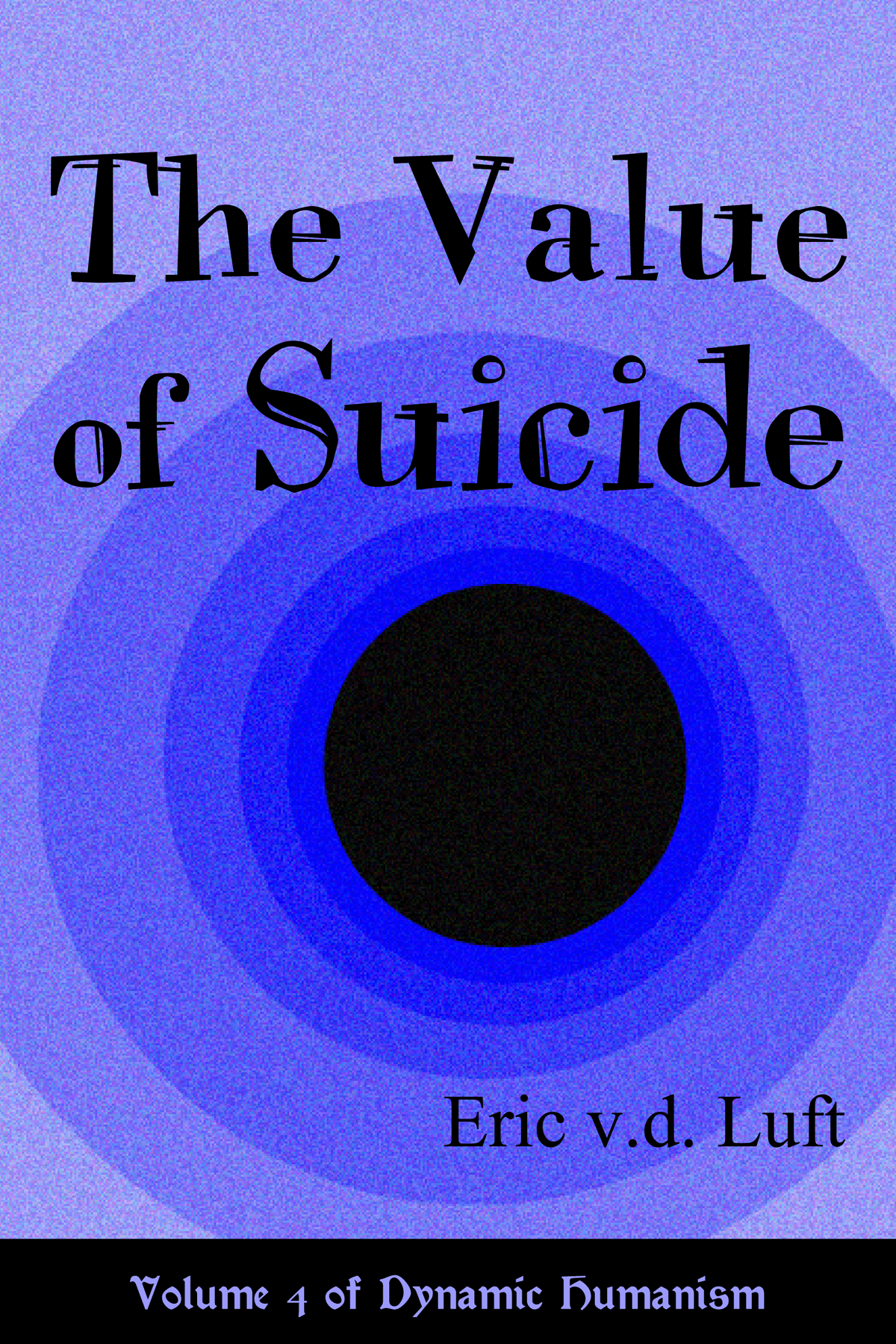
ISBN 978-0-9655179-4-2 (Kindle e-book), $4.99
ISBN 978-1-933237-70-1 (EPUB e-book), $4.99
ISBN 978-1-933237-89-3 (PDF e-book), $4.95
Excerpt:
We do not exist because our bodies exist; our
bodies exist because we exist. Our visible mirror
images exist only because we exist first. We do
not know that we exist because we see ourselves
in mirrors, but because we simply know - intuitively,
or even pre-reflectively - that we exist. In other
words, we are not bodily beings with the attribute
of spirit; we are spiritual beings with the attribute
of body.
|
Dynamic Humanism, volume 4:
The Value of Suicide
by Eric v.d. Luft
Contents:
Preface
I. Suicide as a Practical Philosophical Problem
I.1. Philosophy vs. Sociology
I.2. Relative Values
I.3. A Provisional Definition
II. Suicide as the Murder of an Object
II.1. Murdering the State's Citizen
II.2. Suicide in Japan
II.3. Murdering God's Servant
II.4. Stoic Psychology
II.5. Disharmony in Dualism
III. Suicide as the Annihilation of the Subject
III.1. Spinoza vs. Kirillov vs. Schopenhauer
III.2. Metaphysical Objections to Overcoming the Instinct for Self-Preservation
III.3. Sylvia Plath: Escaping the Present, Fixing the Past, Preventing the Future
IV. Bobby Sands, Elizabeth Bouvia, Socrates, Sydney Carton
IV.1. Political Martyrdom
IV.2. Suicide in Medical Contexts
IV.3. Suicide to Preserve One's Moral Worth
IV.4. Suicide to Create One's Moral Worth
From the Preface:
This book is not about the medical, psychological, psychiatric, sociological,
statistical, or even theological aspects of suicide. It does not investigate the
pathology of why some people kill themselves and it certainly does not
attempt either to prevent or to encourage suicide. It is a book on the
philosophy of suicide. It examines (1) the ontology of suicide, i.e., what
suicide is from the perspective of being, and (2) the ethics of suicide, i.e.,
whether suicide ought to be morally permitted and what its effects in the
world are when it is. In other words, it is about the "axiology," i.e., the
"theory of the value" of suicide. Toward this end, it occasionally considers
historical, biographical, and literary cases. ...
The main point is to argue that suicide ought not automatically to be seen as
an expression of despair, but that some people have non-despondent, creative,
altruistic, unselfish, or advantageous reasons for doing themselves in. The
ancients knew this. Our culture has lost this insight in the meantime. I want
to recover it.
|

|

